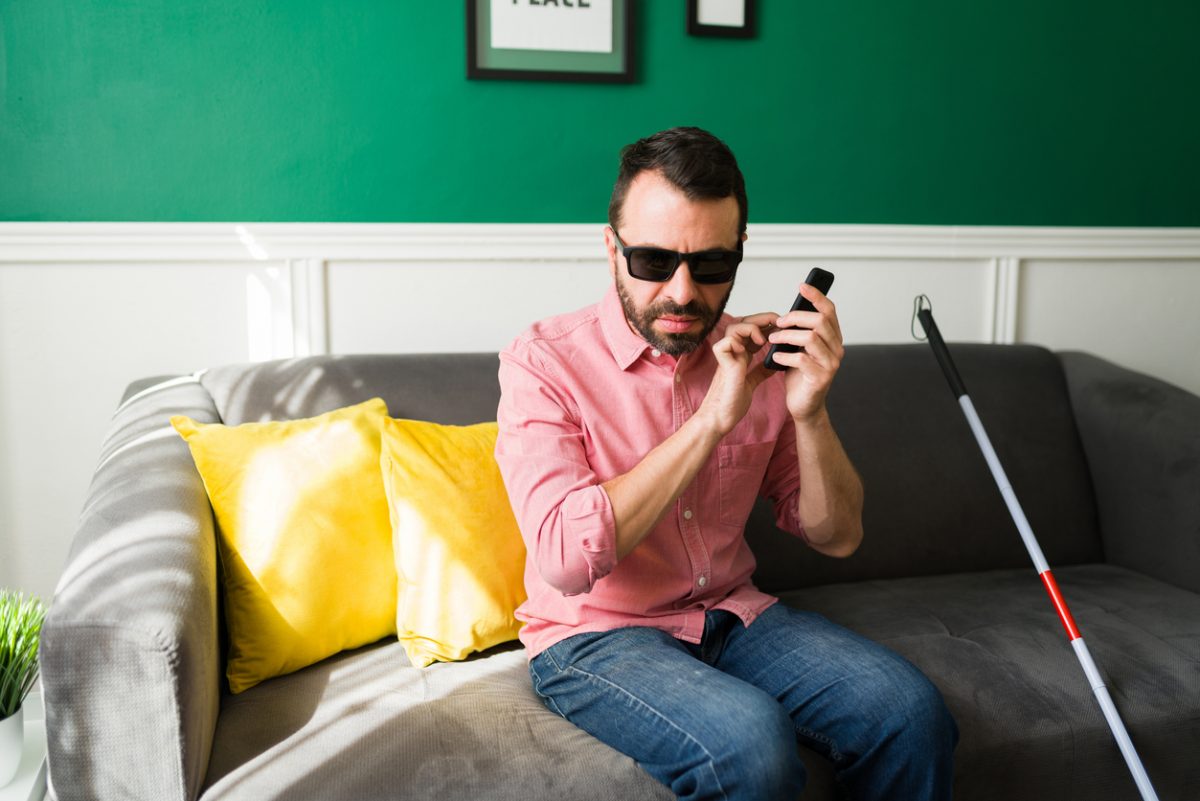
COVID-19 and Telepsychiatry in Iran
In recent months with the onset of the coronavirus 2019 (COVID-19) pandemic, the mental health of individuals has been severely affected. In addition to exacerbating previous issues, psychiatric patients have developed new adaptive problems.1 According to experts and recent evidence from Iran,2 the probability of subsequent COVID-19 waves is high, so it is important for the mental health system to prepare for these conditions.
During the first COVID-19 wave, several problems in the field of mental health care were observed in the community.3 In Iran, field reports show similar issues. Some of these challenges include the following: (1) quarantine conditions prevented patients from receiving appropriate treatment and sometimes caused a recurrence of a previous disorder and new symptoms. (2) Mental health services were provided with less priority, and services in some mental health facilities were replaced with those related to treatment of patients with COVID-19 infection.4 (3) Many therapists and patients were eager to provide and receive services online, while in government centers there was no comprehensive program to deliver online services.5 Also, government centers that had the facilities to provide remote services had some limitations due to the lack of a coherent system to cover insurance. (4) Many people were unaware of the presence of online services, and some were unfamiliar with such methods. This lack of awareness was seen in not only patients but also therapists, who were not always up to date with regard to using such technologies. (5) Private systems provided services with relatively short interruption, but there were fewer of these centers in low-income cities. Also, the high cost of private services and the long duration of most treatments prevented many patients from receiving such services.4 (6) In the case of cognitive rehabilitation, the closure of most daily rehabilitation centers aggravated the symptoms of chronic patients with severe psychiatric illness. Increased daily interactions between patients and family members also aggravated symptoms in patients and frustrated family members.6 (7) In the general population, conflicts between spouses, children, and parents increased the need for counseling centers, but facilities are limited.7
We make the following suggestions to address these challenges.
Preventive Services
- Provide general education on prevention of COVID-19. In the next stage, training will be necessary to increase general adaptation and resilience, which can prevent a decline in health care, and reinforce the principles of COVID-19 prevention despite the course of the disease.
- Implement behavioral skills training for families (communication skills, stress management, and anger management) to avoid stressful relationships and violence during this period.
- Establish systems for specialized telephone counseling for people in crisis and inform the public about how to use these services.
- Educate the public to use a variety of telemedicine modalities and applications.
Treatment Services
- Provide adequate medical facilities and treatment units to deal with COVID-19 infection so that we do not have to discontinue mental health services to respond to these patients.
- Develop access to remote mental health facilities and online prescriptions with insurance tariffs. This type of insurance for online services is also important for psychotherapy sessions due to the number of sessions and associated expenses.
- Provide a safe and suitable low-cost public internet platform through the public sector and psychiatric hospitals. Ensure that professional ethics and confidentiality are maintained and that supervision is provided.
- Design Iranian electronic and online applications for service delivery suitable for patients and therapists. Consider use of telephone visits, as not everyone in the community has access to smartphones or the internet.
Rehabilitation Services
- Provide some type of rehabilitation that can be practiced outdoors.
- Provide patients with severe mental illness safe transportation to day care centers through government agencies.
- Provide psychoeducation for patients’ families to address highly expressed emotion.
- Utilize the telephone follow-up method to prevent recurrence of mental illness.
- Use the home visit method sparingly for chronic, severe, noncooperative patients.
Conclusion
It seems that in the specific context of the COVID-19 pandemic when access to mental health services is reduced, telepsychiatry can be a good alternative, but depending on the condition of the service provider and the recipient, the benefits and challenges associated with its use can vary. Medical centers can help improve the situation by establishing an appropriate digital platform, providing a suitable space for therapists who want to hold meetings in this format, and exploring the possibility of receiving payment for online services and establishing health insurance for online services, while addressing privacy, confidentiality, and ethical and legal issues.
Received: August 11, 2020.
Published online: October 22, 2020.
Potential conflicts of interest: None.
Funding/support: None.
REFERENCES
1. Zhou X, Snoswell CL, Harding LE, et al. The role of telehealth in reducing the mental health burden from COVID-19. Telemed J E Health. 2020;26(4):377-379. PubMed CrossRef
2. Venkatesan P. COVID-19 in Iran: round 2. Lancet Infect Dis. 2020;20(7):784. PubMed CrossRef
3. Druss BG. Addressing the COVID-19 pandemic in populations with serious mental illness [published online ahead of print April 3, 2020]. JAMA Psychiatry. PubMed CrossRef
4. Moghanibashi-Mansourieh A. Assessing the anxiety level of Iranian general population during COVID-19 outbreak. Asian J Psychiatr. 2020;51:102076. PubMed CrossRef
5. Yao H, Chen J-H, Xu Y-F. Rethinking online mental health services in China during the COVID-19 epidemic. Asian J Psychiatr. 2020;50:102015. PubMed CrossRef
6. Zandifar A, Badrfam R. Iranian mental health during the COVID-19 epidemic. Asian J Psychiatr. 2020;51:101990. PubMed CrossRef
7. Bradbury-Jones C, Isham L. The pandemic paradox: the consequences of COVID-19 on domestic violence. J Clin Nurs. 2020;29(13-14):2047-2049. PubMed CrossRef
aSpiritual Health Research Center, Iran University of Medical Sciences, Tehran, Iran
bMental Health Research Center, Department of Psychiatry, School of Medicine, Iran University of Medical Sciences, Tehran, Iran
*Corresponding author: Fatemeh Hadi, MD, Mental Health Research Center, Shahid Mansouri St, Niyayesh St, Sattarkhan Ave, Tehran, Iran ([email protected]).
Prim Care Companion CNS Disord 2020;22(5):20com02786
To cite: Shirzad F, Hadi F. COVID-19 and telepsychiatry in Iran. Prim Care Companion CNS Disord. 2020;22(5):20com02786.
To share: https://doi.org/10.4088/PCC.20com02786
© Copyright 2020 Physicians Postgraduate Press, Inc.
Enjoy this premium PDF as part of your membership benefits!





